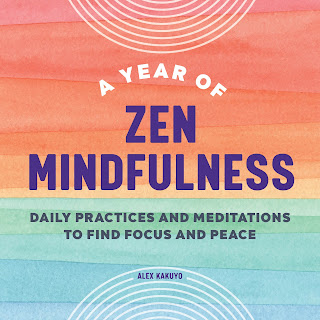A student sat down in front of their teacher and asked, "How do caterpillars become butterflies?" The teacher replied, "They don't, only butterflies can become butterflies."
This koan comes from my new book, "A Year of Zen Mindfulness". I like it because it describes my approach to teaching the Dharma along with the primary focus of my book, which is to help people transform their daily life experiences into spiritual practice.
The koan is based on Hongaku or original enlightenment, which is at the heart of Mahayana Buddhism. Simply put, the teaching states that we all have Buddha nature, which is the source of enlightenment.
Thus, enlightenment is not the goal of spiritual practice. It's the starting point. We don't study sutras, sit on the cushion, and chant in front of our altars because we need to attain something. No, we do these things because they remind us of what we already have. They point our attention inwards; to the enlightenment we already possess, and they help us live that enlightenment in daily life.
This is a subtle point, but it's an important one. Without Hongaku, without an understanding of original enlightenment, Buddhism becomes one in a long list of self-improvement items. It becomes no different than buying a new car or doing a juice cleanse in the hopes that our dirty, misbegotten selves will become worthy.
In the koan, the teacher is reminding the student that there is no real difference between a caterpillar and a butterfly. Sure, the wings and pretty colors of the butterfly may not be apparent until after the caterpillar emerges from its cocoon.
But the transformation is only possible because that butterfly nature was already there. This is evidenced by the fact that dogs can't "become" butterflies. Dogs are dogs. Cats are cats. And caterpillars... are butterflies.
Similarly, the fact that humans can realize enlightenment is proof that we are already enlightened. We are Buddhas. And spiritual practice is the cocoon, which brings our Buddha nature into the world.
Namu Amida Butsu



Comments
Post a Comment